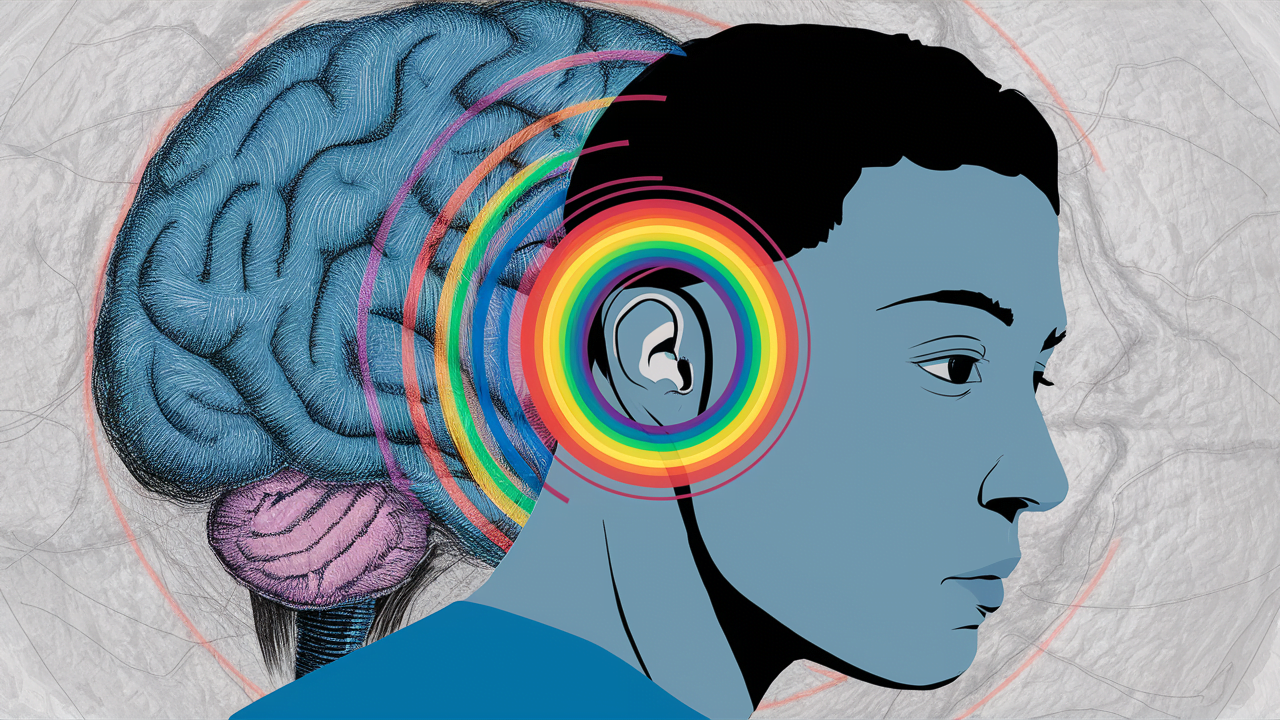What is Tinnitus?
Tinnitus is a condition characterized by the perception of sound in the ears or head without an external source. It is often described as a ringing, buzzing, whistling, or hissing noise. Tinnitus can be experienced in one ear (unilateral tinnitus) or both ears (bilateral tinnitus).
While tinnitus is not a disease itself, it can be a symptom of an underlying condition or a side effect of certain medications.
Causes of Tinnitus
There are various potential causes of tinnitus, ranging from age-related hearing loss to exposure to loud noises. Here are some common causes:
- Noise-induced hearing loss: Prolonged exposure to loud noises, such as those from machinery, music concerts, or firearms, can damage the delicate structures in the inner ear, leading to tinnitus.
- Age-related hearing loss: As we age, the tiny hair cells in the inner ear gradually deteriorate, which can result in tinnitus.
- Earwax buildup: Excessive earwax can harden and press against the eardrum, causing tinnitus.
- Changes in bone and muscle movements: Tinnitus can sometimes be caused by changes in the bone and muscle movements around the ear, such as those caused by temporomandibular joint (TMJ) disorders.
- Head and neck injuries: Injuries to the head or neck can affect the inner ear, auditory nerves, or brain structures involved in hearing, leading to tinnitus.
- Ménière’s disease: This inner ear disorder can cause vertigo, hearing loss, and tinnitus.
- Acoustic neuroma: This non-cancerous tumor on the main nerve from the ear to the brain can cause tinnitus, along with other symptoms like hearing loss and dizziness.
- Certain medications: Some antibiotics, cancer medications, diuretics, and aspirin can cause tinnitus as a side effect.
- Underlying health conditions: Conditions like cardiovascular disease, thyroid disorders, and diabetes can sometimes lead to tinnitus.
Ringing in One Ear Only: Unilateral Tinnitus
While tinnitus can occur in both ears, some individuals experience ringing or other noises in only one ear, a condition known as unilateral tinnitus. Unilateral tinnitus can have various causes, including:
- Earwax buildup or a foreign object in the affected ear
- Injury or trauma to the affected ear
- Acoustic neuroma or other tumors affecting the auditory nerve in the affected ear
- Ménière’s disease or other inner ear disorders affecting the affected ear
- Temporomandibular joint (TMJ) disorders affecting the affected side of the head or neck
It is essential to seek medical attention if you experience unilateral tinnitus, as it may indicate an underlying condition that requires treatment.
Noise in Ears Not Tinnitus: Potential Causes
While tinnitus is a common condition, some individuals may experience noises in their ears that are not related to tinnitus. These noises can have various causes, such as:
- Pulsatile tinnitus: This type of tinnitus is characterized by a rhythmic pulsing or whooshing sound that may be caused by changes in blood flow near the ear or within the blood vessels of the brain.
- Muscle spasms or contractions: Noises in the ears can sometimes be caused by spasms or contractions of the muscles in the middle ear or surrounding areas.
- Patulous Eustachian tube: This condition occurs when the Eustachian tube, which connects the middle ear to the back of the throat, remains open and allows sounds from the body, such as breathing or heartbeat, to be amplified in the ear.
- Temporomandibular joint (TMJ) disorders: Problems with the jaw joint can lead to clicking, popping, or grinding noises in the ears.
- Vascular abnormalities: Certain vascular conditions, such as arteriovenous malformations or high blood pressure, can cause pulsatile noises in the ears.
If you experience persistent or bothersome noises in your ears that are not related to tinnitus, it is advisable to consult a healthcare professional for proper evaluation and treatment.
Tinnitus Treatment Options
While there is no cure for tinnitus, various treatments can help manage the condition and alleviate its symptoms. The choice of treatment depends on the underlying cause and severity of the tinnitus. Here are some common treatment options:
- Sound therapy: This involves using background noise or customized sound therapy to make tinnitus less noticeable.
- Counseling and cognitive-behavioral therapy (CBT): These techniques can help individuals cope with the psychological and emotional effects of tinnitus.
- Hearing aids: If tinnitus is associated with hearing loss, hearing aids can amplify external sounds and make tinnitus less noticeable.
- Tinnitus retraining therapy (TRT): This approach combines sound therapy and counseling to help the brain habituate to the tinnitus sound.
- Medication: While there is no medication specifically designed to treat tinnitus, certain drugs, such as antidepressants or anti-anxiety medications, may help manage the associated symptoms.
- Surgical interventions: In rare cases, surgical procedures may be recommended to treat underlying conditions causing tinnitus, such as removing an acoustic neuroma or correcting a structural issue in the middle ear.
- Alternative therapies: Some individuals find relief from tinnitus through alternative therapies like acupuncture, hypnosis, or ginkgo biloba supplements, although their effectiveness is not well-established.
It is essential to consult a healthcare professional, such as an audiologist or otolaryngologist (ear, nose, and throat specialist), to determine the most appropriate treatment plan for your specific situation.
Coping Strategies for Tinnitus
While undergoing treatment, individuals with tinnitus can employ various coping strategies to manage the condition and improve their quality of life:
- Relaxation techniques: Practices like deep breathing, meditation, or yoga can help reduce stress and anxiety, which may exacerbate tinnitus symptoms.
- Background noise: Using sound machines, fans, or other sources of background noise can help mask the tinnitus sound and make it less noticeable.
- Avoid silence: Silence can amplify the perception of tinnitus, so it may be helpful to have some background noise, such as music or television, in quiet environments.
- Protect your hearing: Avoiding exposure to loud noises and using hearing protection can prevent further damage to your hearing and potentially reduce the severity of tinnitus.
- Manage stress and anxiety: Tinnitus can worsen due to stress and anxiety, so using stress management methods such as exercise, relaxation, and counseling can be helpful.
- Support groups: Joining a tinnitus support group can provide emotional support, coping strategies, and a sense of community for individuals dealing with the condition.
By combining appropriate treatment options and coping strategies, individuals with tinnitus can better manage their condition and improve their overall quality of life.
Common Causes of Tinnitus
| Cause | Description |
|---|---|
| Noise-induced hearing loss | Prolonged exposure to loud noises can damage the inner ear structures, leading to tinnitus. |
| Age-related hearing loss | Gradual deterioration of hair cells in the inner ear due to aging can cause tinnitus. |
| Earwax buildup | Excessive earwax can press against the eardrum, causing tinnitus. |
| Changes in bone and muscle movements | Conditions like TMJ disorders can affect the bones and muscles around the ear, leading to tinnitus. |
| Head and neck injuries | Injuries to the head or neck can damage the inner ear, auditory nerves, or brain structures involved in hearing, causing tinnitus. |
| Ménière’s disease | This inner ear disorder can cause vertigo, hearing loss, and tinnitus. |
| Acoustic neuroma | A non-cancerous tumor on the main nerve from the ear to the brain can lead to tinnitus and other symptoms. |
| Certain medications | Some antibiotics, cancer medications, diuretics, and aspirin can cause tinnitus as a side effect. |
| Underlying health conditions | Conditions like cardiovascular disease, thyroid disorders, and diabetes can sometimes lead to |


